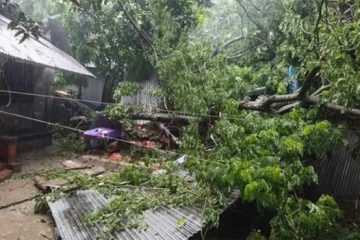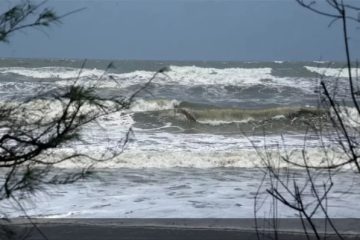Nazrul Islam
The ninth parliament goes into its first session late January with an agenda of crucial issues, including endorsement of the activities of the immediate-past caretaker administration that took time beyond constitutional mandate for elections.
After the passage of about 27 months before the formation of the new parliament through the December 29 elections, president Iajuddin Ahmed on Thursday summoned the session on January 25 that will elect a speaker and a deputy speaker of the Jatiya Sangsad (National Parliament) on the first sitting.
The maiden session has to decide the fate of as many as 114 ordinances promulgated during the two years’ rule of the military-backed administration of Fakhruddin Ahmed, which was installed amidst a state of emergency in January 2007.
The parliamentary polls, originally scheduled for January 22, 2007, were suspended because of the declaration of a state of emergency by the president, who as the head of the caretaker administration at that time, had failed to hold the elections.
The constitution stipulates that the elections should be conducted within 90 days inside the dissolution of the Jatiya Sangsad.
But the elections took place on December 29, 2008 with Awami League-led alliance winning most of the parliamentary seats. The alliance formed the government on January 5, 2009.
The elected government has appointed legal experts to look into the ways and means for endorsing the ordinances and the validity of Fakhruddin administration.
The law, justice and parliamentary affairs minister, Shafiq Ahmed, said the committee had got into business.
On his first day in office, the law minister suggested either a single order to approve all the ordinances under an umbrella bill for constitutional amendment or separately give approval to each ordinance in parliament.
In the case of approval by an umbrella bill, irrelevant ordinances would be repealed later, he said.
‘The government will do whatever is good for the nation within the constitutional framework.’
According to the constitution, the ordinances will be ineffective automatically if they are not accepted in parliament in the first 30 days of the session.
Lawmakers of the ruling Awami League expect that the first session of the new parliament will be a lengthy one. As the president conventionally addresses the parliament’s first session of the year, the lawmakers usually discuss thanks motion on his speech, and it takes a considerable amount of time.
As the five-year tenure of president Iajuddin Ahmed expired in September 2007, the first session may also witness an election schedule for presidential poll. The Election Commission will arrange the poll.
Although the opposition Bangladesh Nationalist Party-led alliance alleged massive irregularities in the December 29 elections, it announced last week that it would play its due role in parliament ‘provided the ruling alliance behaves’.
The BNP-led alliance won 32 out of 299 electoral constituencies in the elections.
Leaders of the AL-led ruling alliance said that they wanted a lively and vibrant parliament where the treasury and opposition lawmakers would play their due role.
‘We want the opposition lawmakers to play their part to ensure the government’s accountability in parliament,’ said Abdus Shahid, one of the leading AL lawmakers who served as opposition chief whip in parliament during the BNP-led alliance’s 2001-2006 regime.
The AL and BNP, two major parties which ruled the country by turns, have developed bitter relations in parliament since the parliamentary system of government was restored in 1991. In most cases, they stayed out of parliament while in opposition, making parliament mostly dysfunctional.
The maiden session of the previous eighth parliament, which came into being October 28, 2001, was boycotted by the main opposition Awami League party alleging massive fraud in October 1, 2001 elections.
The main opposition party remained absent for most of its 373 working days stretching over 23 sessions in five years. The treasury and opposition benches failed to reach a consensus on any single national issue.
Political analysts say the hostile relations between the parties eventually resulted in the political changeover in January 2007.
Political scientist Talukder Maniruzzaman, however, expressed hope that the parties would now work for the national interest.
‘I hope they will take a lesson from the last two years of unelected government while taking their future course of action.’
Courtesy: newagebd.com




















